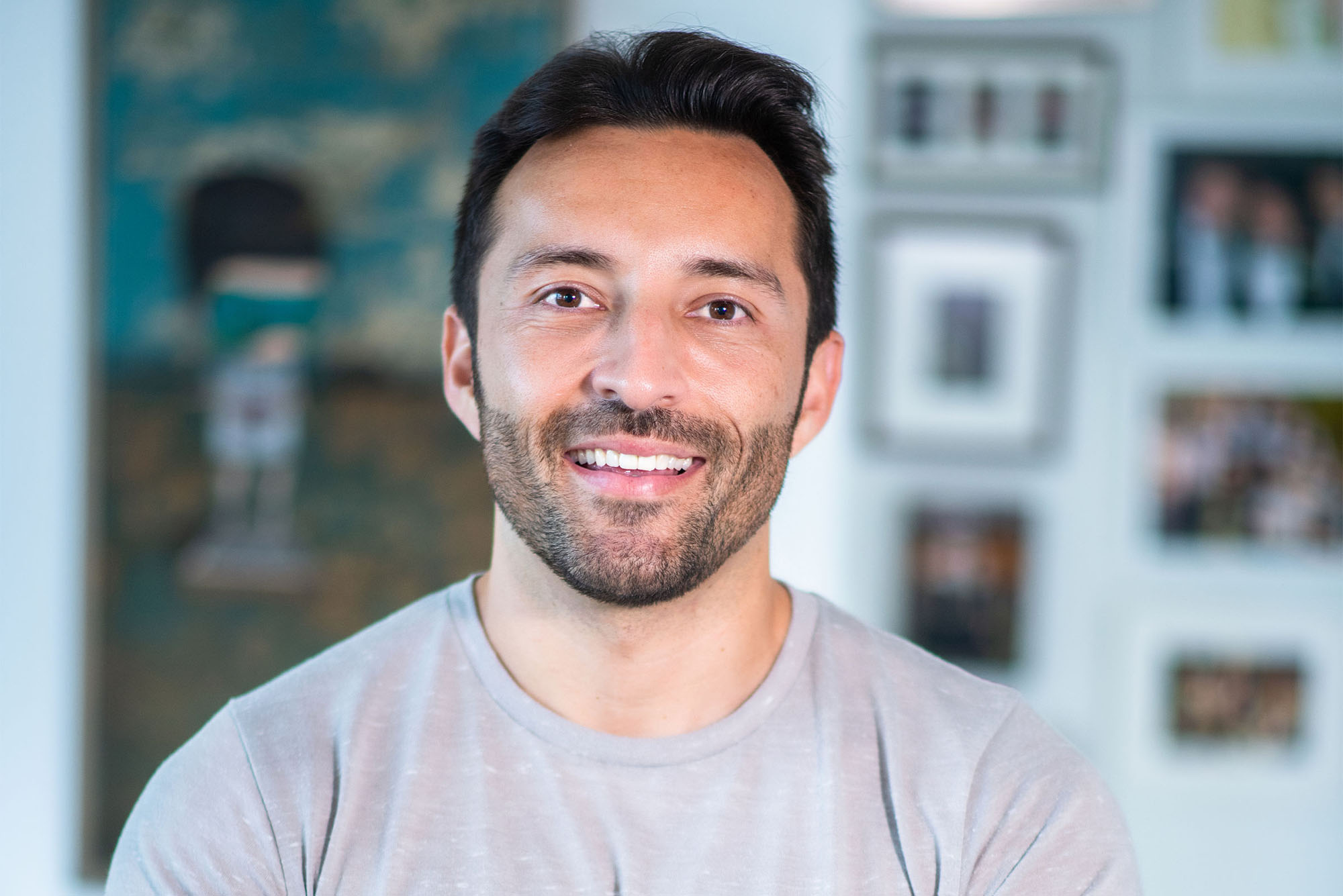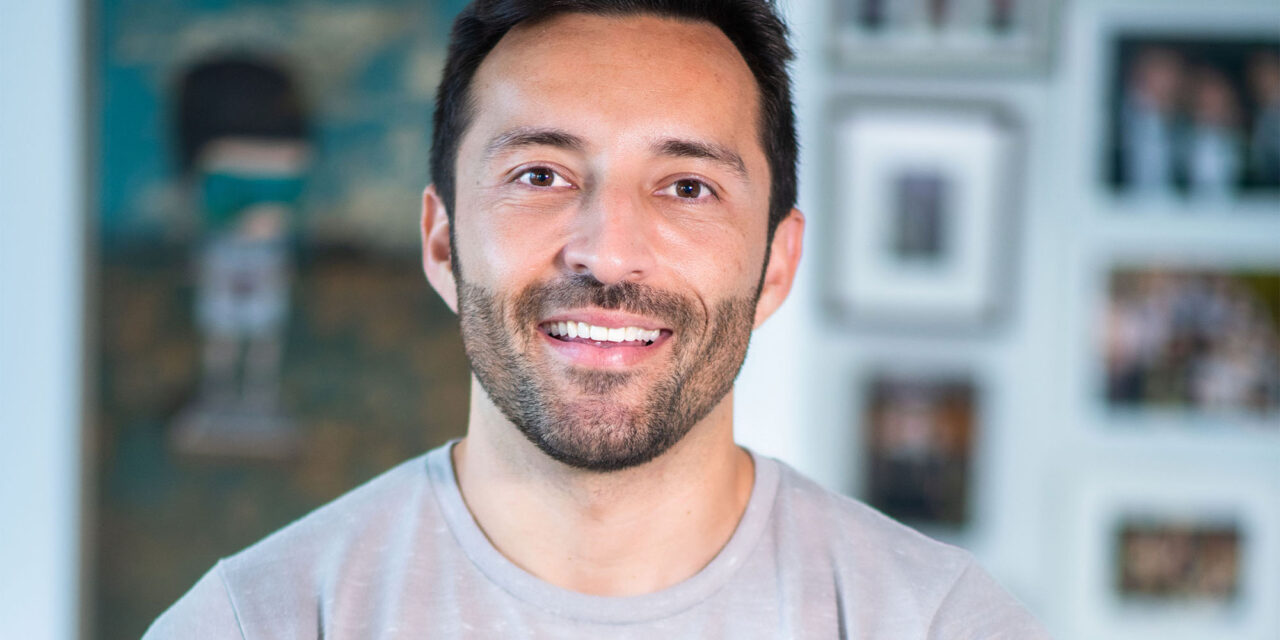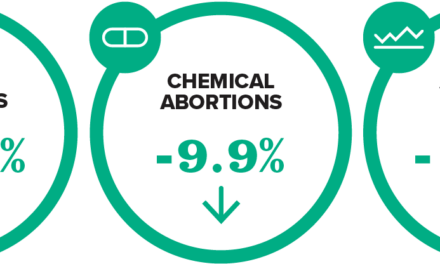
Alejandro Garcia-Amaya (CGS’05, Questrom’07),
cofounder of the tech company AnswerBite
“In my tech journey, I’ve found that doors are open, but they can often close quickly due to preconceived notions,” says Alejandro Garcia-Amaya (CGS’05, Questrom’07). Photo by Prasenjit Roy/The Royal Studios
They are determined to use their experience, influence, and positions to help make their business, organization, and world more inclusive. They are breaking barriers—and then reaching back to help those behind them overcome the same hurdles. They are BU alumni, faculty, and staff—of every race, ethnicity, age, and gender—and they are “Opening Doors” for the next generation.
The youngest of three brothers, Alejandro Garcia-Amaya was born in New York, but grew up on a farm outside Bogota, Colombia. “Surrounded by love and animals, our upbringing was shaped by our parents’ personalities and passions,” he says, with his mother an entrepreneur and his father a diplomat. The family moved to Scarsdale, N.Y., when Garcia-Amaya was nine and his dad became Colombia’s deputy ambassador to the United Nations. Visiting BU while considering colleges, he says he “fell in love with the city’s energy.”
Today, Garcia-Amaya (CGS’05, Questrom’07) is cofounder of the tech company AnswerBite, which uses artificial intelligence to comb clients’ uploaded, recorded conversations—webinars, podcasts, event videos—and select takeaway moments that the company turns into teasers for social media. With his brothers, Ricardo and Andres, Garcia-Amaya also started Top American Latinx Tech Leaders, which seeks to expand the number of Latin American–led tech companies. (The firm has staff in multiple countries; Garcia-Amaya is based in Miami.)
Before AnswerBite, he was in charge of sales at his brother’s company Etectonics, an IT consultant for businesses. “One highlight was convincing Melinda Gates to sign a contract for Etectonics to provide free educational computer classes at all 92 branches of the New York Public Library,” Garcia-Amaya recalls. He also worked with his mom to form a marketing company that attracted more than 135 Fortune 500 clients.
Q&A
With Alejandro Garcia-Amaya
Bostonia: In layperson’s terms, what does AnswerBite do?
Garcia-Amaya: AnswerBite saves event marketing teams time by instantly turning recorded chats from workshops, summits, and conferences into engaging social media content. With AnswerBite’s AI, what used to take teams weeks now takes minutes. AnswerBite is backed by notable companies, accelerators, and investors, such as Google Startups, Techstars Boulder Accelerator, and Ulu Ventures. We are a minority-owned, gender-parity company. Our diverse backgrounds and experiences leading fast-growing tech companies are our strength.
Bostonia: What was your experience like at BU?
Garcia-Amaya: I loved the College of General Studies. The opportunity to study Greek philosophy in humanities or explore the revolutions in the USSR and China in social sciences was priceless. Throughout my four years, I lived in West Campus—Rich Hall for the first year, 1040 Commonwealth Ave. for the second, and the last two at StuVi, where I was lucky to enjoy the newly built Agganis Arena at the time. Looking back, I wish I did more electives, since they are an amazing opportunity to continue getting out of your bubble and meeting new friends.
Bostonia: What went into founding AnswerBite? What made you come up with the idea, how did you raise money to launch it, and how did you hire and assemble a global set of investors?
Garcia-Amaya: AnswerBite was born originally because I wanted a fast way to extract takeaway clips from the recorded conversations I have with guests in my podcasts Zero to Billions and the CMO Spotlight. Instead of having to relisten to an entire 60-minute recorded conversation and pick shareable stand-alone moments, AnswerBite automatically finds and packages those moments into social media posts. Since my older brother at the time had already raised over $7 million for his venture-backed tech company, I got a first-row seat and course in the art of fundraising. I raised small angel checks from family and friends first, and then from VCs [venture capitalists] after finding traction and demand for our first product.
Bostonia: Who “opened doors” for you in the business world? Or did you have to figure it out on your own? Have you ever felt a door was not open to you because of your background?
Garcia-Amaya: First off, I want to express my deep belief in the idea that our progress is built on the foundations laid by those who came before us. I owe much to my parents, who moved to the US, settling in Scarsdale, to ensure we received an excellent education. Their sacrifices paved the way. My mom’s emphasis on us being born in the US granted my brothers and me the freedom to start our own businesses. Growing up on a farm in Colombia taught me to appreciate life’s simple pleasures. Having two older brothers, whom I deeply love and respect, instilled in me the courage to take risks and fostered an internal drive for self-improvement. Both brothers have founded and lead their own venture-backed tech companies, and I continue to learn from their journeys.
In my tech journey, I’ve found that doors are open, but they can often close quickly due to preconceived notions. I believe all of us carry preconceived notions; that’s why traveling and meeting others in communities different than ours is crucial. If a room of VCs is predominantly white males from Stanford, they naturally resonate more with that community. Early-stage investing, with just one, two, or three founders, is inherently risky. Beyond the business aspects, confidence in the founder plays a pivotal role. Unfortunately, minorities often face a disadvantage in this area, impacting outcomes significantly. This underscores the need for not only more minorities as founders in tech but also increased representation of minority investors in VC rooms. And we are slowly seeing that happen. Ulu Ventures is an investor of ours and a minority-led VC. Or, my friend Rami Reyes and what they are doing at Somos Ventures.
Bostonia: What’s the state of diversity in the tech industry these days? Do you see people of different backgrounds walking through tech offices?
Garcia-Amaya: Progress has been slow. According to a study by BBG Ventures, in 2022, women-only-led companies received just 1.9 percent of VC funding. This has stayed between 1.9 and 8 percent over the past 10 years, generally hovering between 2 and 3 percent. All Black-founded companies, irrespective of gender, received only 1 percent of VC funding, and Fast Company estimates that the combined share of Latina and Black women founders’ venture capital was only slightly over 1 percent. In contrast, companies with all-white-male founding teams received 86.3 percent of venture dollars at the seed stage. VC-backed start-ups are still disproportionately run by men (89.3 percent) and white people (71.6 percent), as reported by Diversity VC; however, founding teams with greater gender and ethnic diversity achieve 30 percent higher returns for investors than their white-male founder counterparts.
Leadership needs to know that diversity is not charity, it’s a competitive advantage.
Bostonia: Is that why you and your brothers started the Top Latinx Tech Leaders (TLTL) Group?
TLTL was started because seven years ago, it was hard to find and connect with successful venture-backed Latino tech founders in San Francisco. We began as a simple meet-up between the few Latino venture-backed tech founders. Now, TLTL is a group of Latino founders and investors that, in aggregate, have $120 billion to invest. We have a private Whatsapp group where we share news and thoughts, ask for help, and support one another. Our mission is to have 40 American Latinx founders running billion-dollar tech companies by 2040. This comes by supporting one another and keeping our doors open for the next generation of minority founders and investors.
Bostonia: What can people do in their own workplaces to make them more inclusive, diverse, and welcoming?
It starts at the top. Leadership needs to know that diversity is not charity, it’s a competitive advantage. If you are not surrounding yourself with individuals who can test your vision because they rose from different backgrounds, communities, traditions, experiences, then you have placed yourself, team, investors, stakeholders at a disadvantage.





